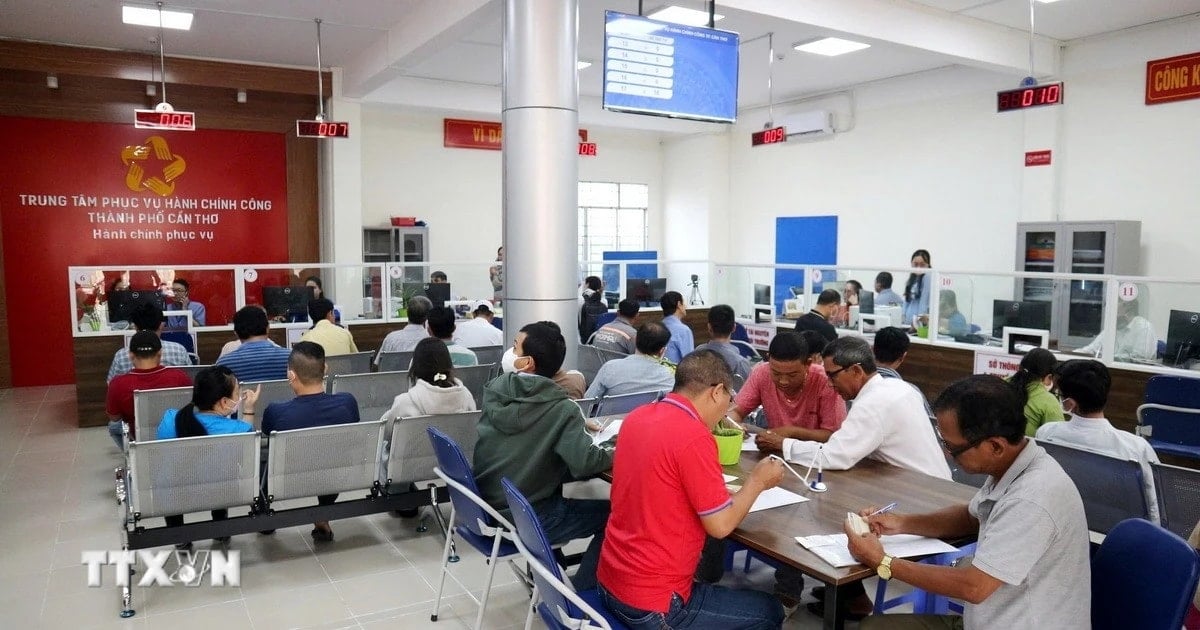Online fraud is becoming a serious problem with increasingly sophisticated tricks, causing many people to lose hundreds of millions, even billions of dong. In this situation, raising awareness and skills to protect personal information are important solutions to help people protect themselves in cyberspace.

The incident of a guest booking a room through a blue-ticked fanpage at a resort in Ninh Binh losing more than 1 billion VND has caused a stir in public opinion. According to a recent report by Ms. T. (in Hai Phong), she booked a room at Minawa Kenh Ga resort in Ninh Binh for 2 adults and 2 children from January 31 to February 3. After texting and receiving advice on the resort's fanpage, Ms. T. closed the room and transferred a deposit of 6.5 million VND/2 rooms to the resort.
Not long after, a consultant claiming to be from the resort reported that the customer had sent an incorrect transfer. The transfer must contain the booking code. If the customer sends the wrong information, the system will not be able to read it and the reservation will not be held.
After many consecutive transfers, the customer was reported to have incorrect information. The next times, the consultant urged the customer to transfer the deposit early during the promotion period and copied the code provided by the "resort" into the transfer content for the accounting department to confirm and refund the initial deposit. Ms. T. entered the transfer code of 39.5 million VND; 125.6 million VND; 379.6 million VND and 485.6 million VND. The total amount transferred was more than 1 billion VND. Finally, unable to contact the resort, Ms. T. realized she had been scammed and reported it to the police.
According to experts from the Department of Information Security (Ministry of Information and Communications), many groups of scammers choose to create fake fanpages and then use tricks to get a blue tick from Facebook. The scammers will run fake fanpage ads to create credibility, even buying fake comments about booking rooms or praising homestays and hotels to gain trust from tourists. Technology experts said that according to Facebook's algorithm, fanpages and groups with higher followers will often appear first, so tourists can easily get confused.
According to the National Cyber Security Association, online fraud continues to rage, causing serious consequences for hundreds of thousands of Vietnamese users in recent times. According to a survey by the National Cyber Security Association, 1 in 220 users will be a victim of online fraud. The total damage caused by online fraud in 2024 is estimated at VND18,900 billion.
The forms of attacks on users by scammers are very diverse and sophisticated. The three most common forms in 2024 include: luring users into fake investment schemes, promising high profits; impersonating the identity of agencies and organizations; and fraudulently announcing big prizes and promotions.
In addition to sophisticated scenarios, scammers have used many modern technologies such as: Deepfake artificial intelligence technology to create fake videos and voices to build trust from victims; applying automatic tools (chatbots) to continuously communicate with victims; using specialized software on computers to make telecommunication calls, reaching many people at the same time... The application of high technology makes many victims unable to distinguish between real and fake content when exposed to fake content, leading to easy deception.
In fact, the number of victims of fraud is large, but the number of people who can get their money back is very small. When falling into a fraud trap, although 88.98% of users said they immediately warned and talked to relatives and friends, only 45.69% of respondents said they reported to the authorities, this is a quite low rate.
According to experts from the Cyber Security Association, reporting to the authorities when encountering fraud is necessary to protect the rights of the victims and prevent illegal acts. Firstly, reporting will help the authorities have timely information to investigate and collect evidence, thereby increasing the ability to arrest and handle fraudsters. Secondly, reporting can also help the victim recover part or all of the stolen property, especially when the authorities intervene early and freeze the related assets.
Mr. Vu Ngoc Son - Head of Technology Department, National Cyber Security Association recommends: Online fraud attacks will continue to rage in 2025. In addition to measures from management agencies, users still need to raise their vigilance and safety skills when participating in cyberspace. Do not share personal information with strangers or untrusted services. Carefully verify any calls or exchanges related to money transfers. Use the nTrust anti-fraud application to filter and block fraudulent phone numbers and malicious websites.
Source: https://daidoanket.vn/nang-cao-nhan-thuc-phong-chong-lua-dao-truc-tuyen-10299733.html


![[Photo] Prime Minister Pham Minh Chinh meets with the Ministry of Education and Training; Ministry of Health on the draft project to be submitted to the Politburo](https://vstatic.vietnam.vn/vietnam/resource/IMAGE/2025/3/25/c0e5c7348ced423db06166df08ffbe54)
![[Photo] Minister of Defense presides over inspection of parade and march training](https://vstatic.vietnam.vn/vietnam/resource/IMAGE/2025/3/25/35c2dd58a3e840d3a8cd615e70e89039)

![[Photo] General Secretary To Lam chairs the Standing Meeting of the Central Steering Committee on preventing and combating corruption, waste and negativity](https://vstatic.vietnam.vn/vietnam/resource/IMAGE/2025/3/25/839ea9ed0cd8400a8ba1c1ce0728b2be)



















































































Comment (0)